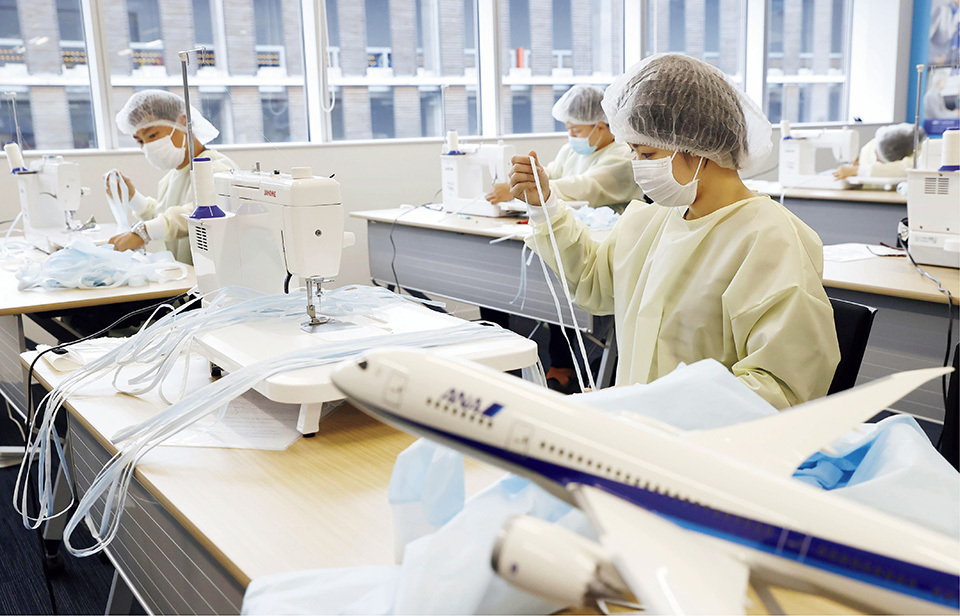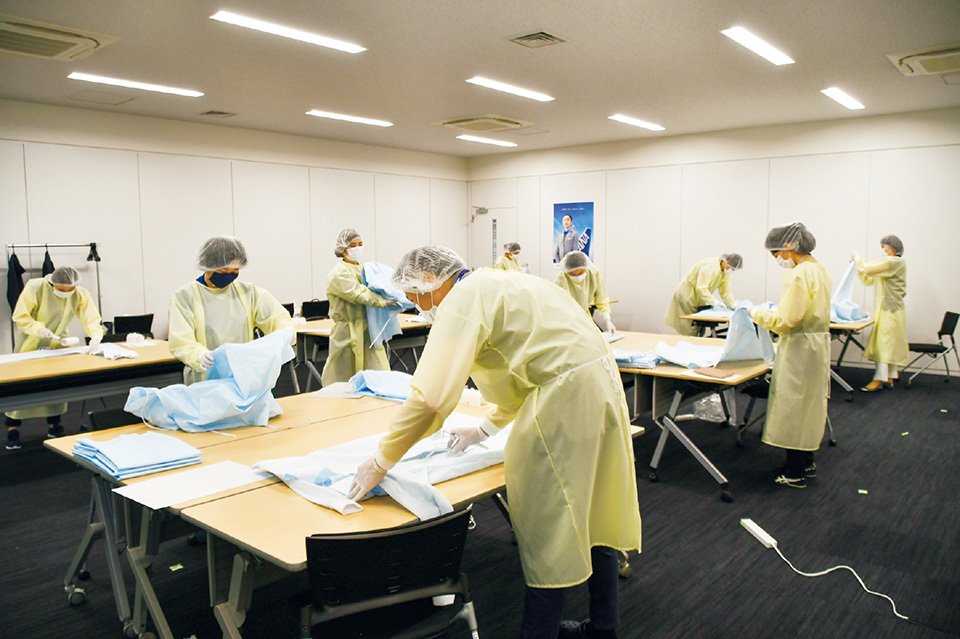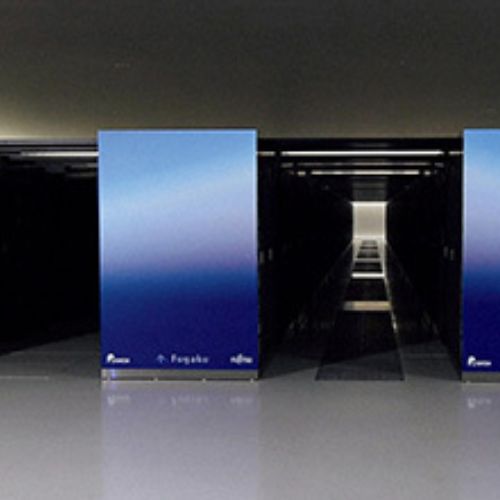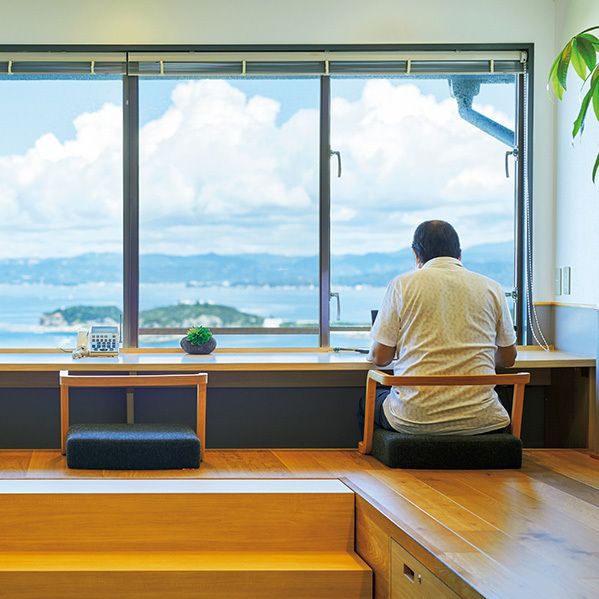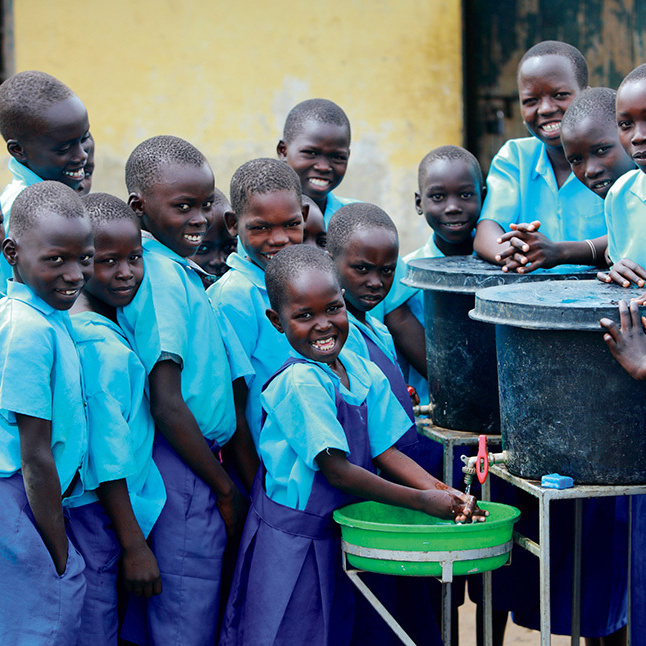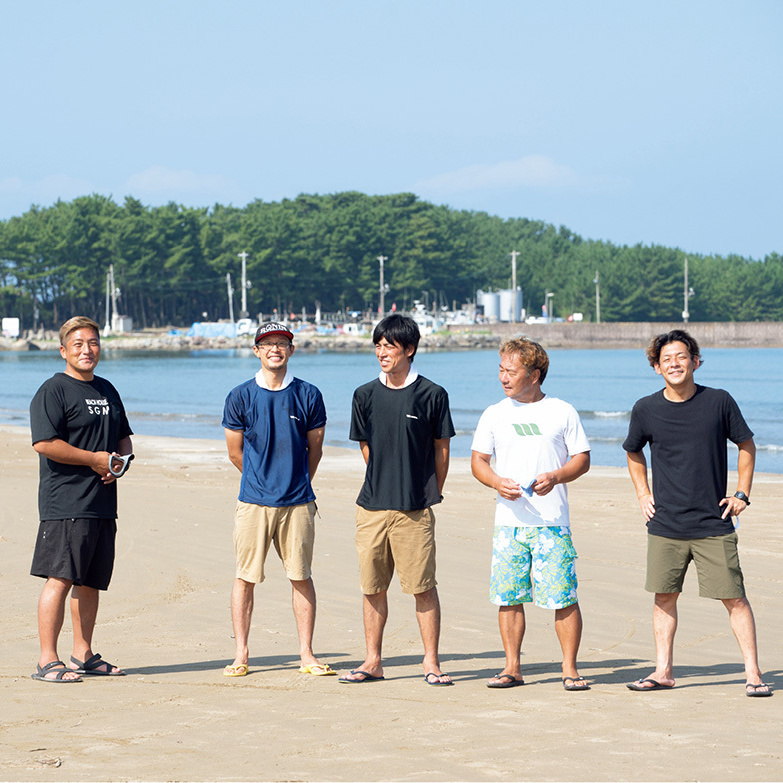The spread of COVID-19 has exhausted supplies of medical-isolation gowns and sanitary ethanol, triggering many Japanese companies to feel a deep-seated desire to help, leading them to take actions to address the shortage. In various forms, their contributions are offering society respite from the suffering caused by the pandemic.
While treating increasing numbers of patients this spring as the novel coronavirus proliferated, Japanese healthcare workers were faced with a serious shortage of medical-isolation gowns. As they sought a way to promptly ensure a steady supply within Japan, some companies from other industries volunteered to aid in the production.
Upon learning about a labor shortage for the manufacture of the gowns, ANA Group, owner of the major Japanese airline All Nippon Airways Co., Ltd., decided that it was time, with the continuing slump in air travel caused by COVID-19, to make what contributions it could, even in an area completely unrelated to the company’s central business.
In addition to sewing, the process of manufacturing gowns includes many other tasks that require human labor. Supporting Valley LLC., a manufacturer in Nara Prefecture that is making medical-isolation gowns to order, without asking for anything in return, ANA Group undertook some of the basic work processes, such as cutting fabric for sleeves, sewing ribbon ties, and inspecting of the products. Senior Director of Corporate Planning MURATA Kanako says, “The production of medical-isolation gowns must be perfectly sanitary. As employees of an airline, we always train ourselves to not only strive for perfection in terms of safety and of service quality, but also to work as a team to achieve such perfection. I felt that we were able to fully leverage our ability throughout this challenge of gown manufacturing.”
According to ANA, over 1,600 employees volunteered for this project. People from a variety of positions including pilots, cabin attendants, and mechanics, formed teams helping in the production of approximately 50,000 gowns in around six weeks. The volunteers succeeded on account of their desire to make a personal contribution to society under the challenging conditions posed by the pandemic.
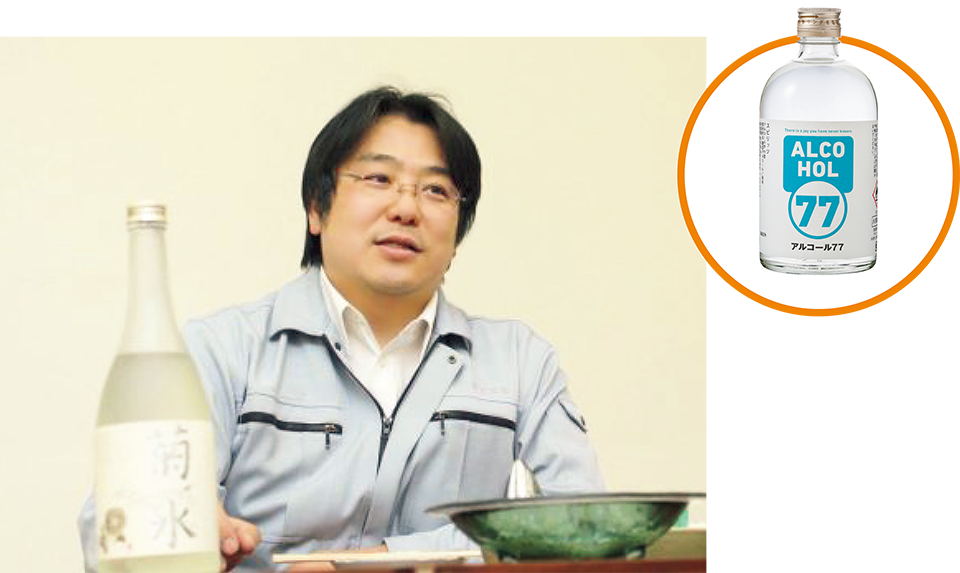
Kikusui Shuzo’s president Haruta says that his company developed Alcohol 77—the ethanol-based sanitizer—out of a desire to benefit society.
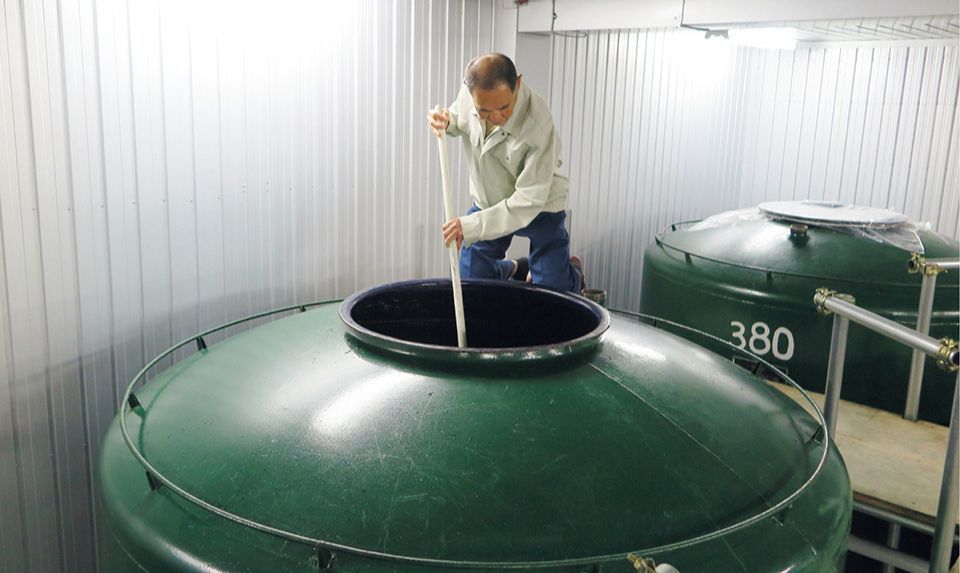
Kikusui Shuzo is a long-established brewery in Kochi Prefecture that produces a wide range of alcohol, from sake to shochu —Japanese traditional distilled spirits.
Another item in short supply has been ethanol-based sanitizer. The Japanese regulations governing ethanol—a type of alcohol—differ depending on whether it is used for producing alcoholic drinks or disinfectant. With a massive shortage of sanitary ethanol, sake brewers took part in addressing the problem by using their abundant stock of ethanol for brewing.
Kikusui Shuzo Co., Ltd., a venerable brewer with a wealth of expertise, was among the first to come out with a product. Since the 1920s, when the company installed the first refrigerated storage facility in Japan, Kikusui Shuzo’s ethos has always been about attempting new challenges. It may be this challenging spirit that empowered the company to overcome a variety of hurdles, including a regulation that required the installation of a dedicated production line to make ethanol for disinfectant. After consultations with the authorities to clear all regulatory issues, Kikusui Shuzo finally decided to produce and sell sake with the same alcohol concentrations as sanitary ethanol. In April, it started selling a new product named “Alcohol 77,” a spirit containing 77% alcohol, which soon went viral on social media and garnered widespread appreciation for the company’s goodwill and social contribution.
Kikusui Shuzo was flooded with inquiries about the sake, and shipped a total of 100,000 bottles in a period of four and a half months.
Kikusui Shuzo was spurred into taking this initiative because it wanted to repay the enormous support that it had received when torrential rains struck western Japan two years earlier. The brewer’s office at the time was flooded with a meter of water, causing the road outside to collapse. Half a year elapsed before the office could resume normal operations, but during that time, the company received a great amount of help from many sources. Kikusui Shuzo’s president, HARUTA Kazuki, says that this is why he now wants to play a supportive role as a sake maker in society.
“With people worrying about supply shortages, we were able to provide reassurance that supplies are available. Sake is a non-essential item that most people would not hesitate cutting out of their budget, but I’m glad we were able to achieve new value.”
By identifying what each can do and supporting society, businesses are demonstrating resilience in the face of COVID-19.

























